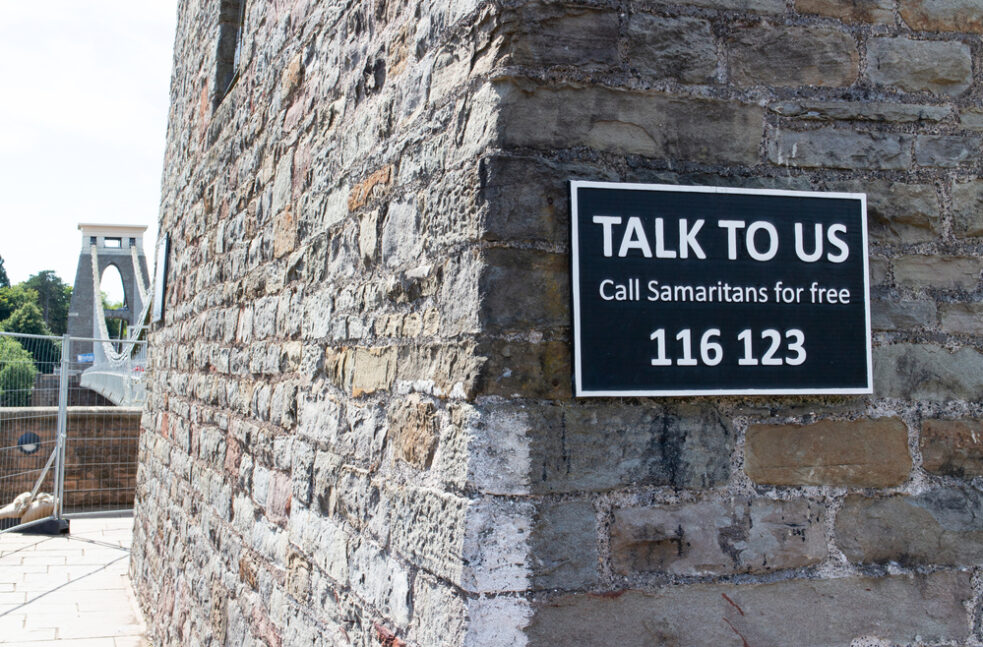


Lets talk about mental health
The coronavirus, war in Europe, and the worst financial crisis in a lifetime affect how many live their lives daily. Usually, this affects people’s mental health. We can all do some things to help ourselves and others during this difficult time.
You may feel more worried or unsettled by what’s happening worldwide. It might feel like things are changing, and a lot is outside your control. There are so many more unknowns around us and our futures, and how we live our day-to-day lives is changing. This uncertainty naturally impacts our mental well-being, and we must talk about the things we’re struggling with and find ways to help each other. It’s likely your mood could be affected, and it’s something we’d encourage you to talk about.



Talk to the Samaritans
any people struggle to cope at one point or another, and going through a range of emotions during this time is expected. You can contact Samaritans any time you like, or you might also want to speak to someone else you trust, like a family member or your GP or arrange to see a counsellor.
Whatever you’re going through, a Samaritan will face it with you. They are there 24 hours a day, 365 days a year to talk to no matter what.


Bank Workers Charity
As an organisation, they are to help those in the Banking Industry when facing challenges. Although they are an excellent service for all people working in this industry.
BWC personal services are available to all Union members (as well as close family members) either by phone or online. They provide easy, direct access to a range of well-established, independent support groups and organisations that can offer information and guidance on a range of commonly occurring matters, including:
• Relationships
• Working Families
• Disability
• Carers
• Domestic abuse
• Financial planning
• Child bullying
Financial Support – For colleagues experiencing significant hardship or facing a challenging life event, the BWC can provide advice and, in some cases, financial support.



Santander Employee Assistance Programme
Lifeworks are there for Santander employees 24 hours a day, 365 days a year. Their number is 0800 032 3720.
Telephone information -When faced with matters you don’t know how to deal with, it can leave you feeling helpless, vulnerable and overwhelmed. Lifeworks can provide comprehensive information on a range of social and consumer matters. These include family care, pensions, buying and selling houses and consumer rights. This can be invaluable and make all the difference, helping you regain control of your life.
Telephone counselling – When information and advice aren’t enough, you might benefit from some telephone counselling. You can talk to Lifeworks about anything troubling you. Things like relationships, grief, serious illness, separation, anxiety and depression. Having someone impartial to talk to can often help you get things in perspective and find a way to move forward.
Face-to-face counselling – Some things might feel like they’re just too big for you to handle on your own. If you’ve experienced a significant life event as a Union Member, face-to-face counselling with a trained and experienced Lifeworks counsellor may be available.
Even better, the telephone services aren’t only available to you as a Santander employee and are free to immediate family members!
Remember, no one in Santander is made aware that you contacted Lifeworks, and everything you say is in complete confidence. Furthermore, the counsellors are registered practitioners of one of the professional bodies with an ethical code of practice, including not breaching confidentiality to your employer.



Find an NHS psychological therapies service (IAPT)
If you live in England and are 18 or over, you can access NHS psychological therapies (IAPT) services.
A GP can refer you, or you can refer yourself directly without a referral. IAPT (Improving Access to Psychological Therapies) services offer:
• talking therapies, such as cognitive behavioural therapy (CBT), counselling, other therapies, and guided self-help
• help for common mental health problems, like anxiety and depression
If you self-refer:
The Service will contact you; someone from the psychological therapies service will get in touch to ask about your problems. The Service will recommend you therapy.
The therapy you’re offered will depend on the problems you’re experiencing and how severe they are. The Service will also tell you how long you’ll wait for your first therapy session.
Different psychological therapies are available, including online therapy programmes, but they all involve working with a trained therapist.
To start the referral, you can search your area on the internet as the Service is provided by your local NHS mental health service or here.